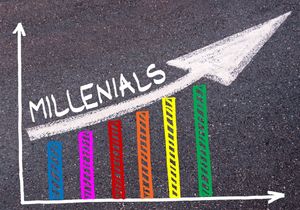ESW’s Global Voices Report Shows Many Developing Countries—including India, UAE, China, and Mexico—Are More Sustainably-Minded
US consumers are less sustainably minded than they were just a year ago, according to a new Global Voices survey from ESW, the world’s leading direct-to-consumer (DTC) ecommerce company. Scoring just 49 this year versus 51 in 2023, the US also lags the global mean, which is 55. The report also reveals that some emerging markets are more concerned about sustainability than their counterparts in more economically mature markets. For example, India (75), the United Arab Emirates (74), China (70), and Mexico (67) topped the list, with Japan (32), Germany (46), UK (46), Switzerland (48), and Canada (48) all coming in with the lowest sustainability scores.
“We were surprised to discover that the degree to which consumers are concerned about sustainability, as well as what they value from the brands they patronize, depends largely upon where they live,” said Martim Avillez Oliveira, Chief Revenue Office, ESW. “The data suggests that while US consumers have been encouraged to make environmentally responsible choices for years, perhaps the intensity of that messaging, along with the increasing strain that inflation places on households, may have consumers at a tipping point.”
The sustainability sentiment score represents the percentage of respondents that “agree” or “strongly agree” with 14 of the sustainability sentiments, including, “I am trying to be more sustainable in my day-to-day life,” “I have stopped buying from certain brands and retailers because of their poor environmental record,” and “I try to buy/shop more sustainably, but will not spend more for more eco-friendly products.”
Other key findings include:
-
Sustainability by generation: In general, younger people were more concerned with sustainability than older generations. Global average sustainability scores by generation:
- Gen Z - 61
- Millennials - 60
- Gen X - 53
- Baby Boomers – 49
- Within the US, Millennials score highest compared to other generations, yet also declined compared to last year. Millennials scored 59 on the sustainability index, (compared to 62 last year) but still rank higher this year than Gen Z (57), Gen X (50), and Baby Boomers (35).
- One-third of all global respondents are environmentally attuned shoppers. The survey classifies shoppers who scored 80 or above on the sustainability scale as environmentally attuned shoppers.
- Globally, more than half of the consumers surveyed (55%) said they are more aware of greenwashing than they were a year ago, and 27% said they considered a brand’s environmental transparency record when making a purchase.
- Luxury shoppers are 1.5x more likely to be sustainably attuned shoppers.
- Shoppers that value brand authenticity are 50% more likely to be environmentally attuned shoppers. Globally 63% of shoppers said that they value brand authenticity and want brands to be truthful and transparent about company environmental credentials.
- Shoppers that value brand names are also more likely to be sustainably minded shoppers with a sustainability score of 62 compared to 47 for non-brand name shoppers. 32% of brand name shoppers are likely to be environmentally attuned shoppers. Furthermore, brand name shoppers believe that a brand name means higher quality and better value. These shoppers have high expectations not just of products and services, but also of environmental records.
While “sustainability” can be defined by consumers in a variety of ways, the survey found that despite this ambiguity, there are several concrete steps brands can take to attract and retain environmentally attuned shoppers. The report finds that 31% of consumers consider sustainable packaging options when shopping online, while 30% consider sustainable shipping options, and 29% value less packaging overall.
To learn more, download the full report here.
Methodology
Responses were gathered from an online panel of adults 18+, representative of national quotas for key demographics in 18 countries. Survey questions and responses were translated into each country’s native language and currencies were converted to local currencies before being converted back to $US for comparison purposes. 18,679 surveys were completed between October 31st and November 14th, 2023.
About ESW
ESW unlocks cross-border ecommerce success for the world’s best-loved brands. We provide localized checkouts that boost conversion rates, solutions that simplify complex logistics, duties and taxes, and a dedicated client-partner approach that provides data-driven strategies to ensure profitable growth.
View source version on businesswire.com: https://www.businesswire.com/news/home/20240418673714/en/
Contacts
Media
Berns Communications Group
Michael McMullan/Danielle Poggi
mmcmullan@bcg-pr.com / dpoggi@bcg-pr.com






